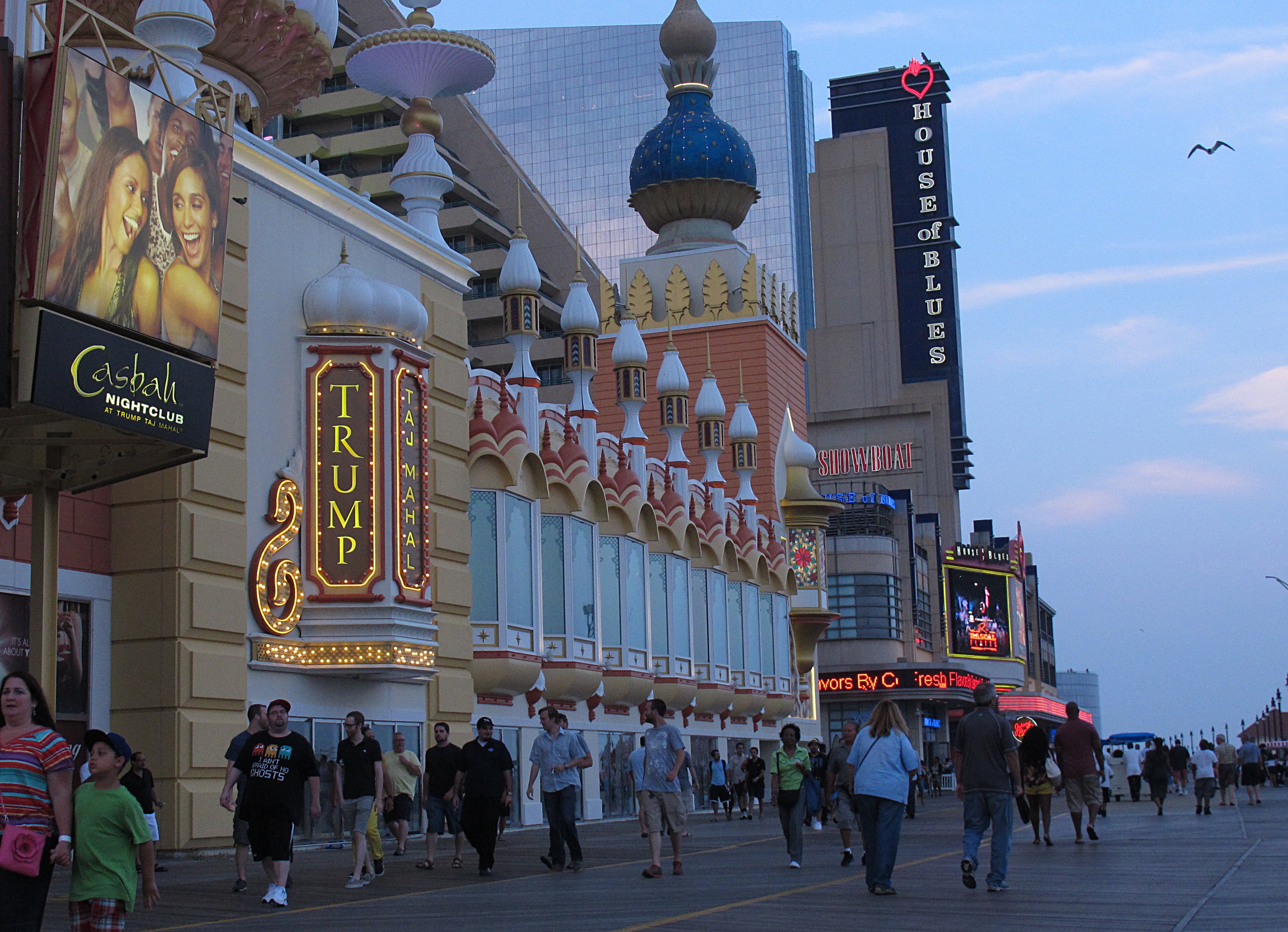Atlantic City: Man-made disaster

The casino boom transformed the Boardwalk, but Atlantic City remains poor and struggling. (AP Photo/Wayne Parry)
When the Trump Plaza casino closes later this month, Atlantic City’s job loss for the year will hit a staggering 8,000, a number that’s roughly one-fifth of the city’s population.
Of course, most of those losing their jobs aren’t city residents, in part because the three-decade casino boom did so little to make Atlantic City a place middle-class people wanted to settle. The whole thing is just a crying shame.
When I came to Philadelphia in 1975, Atlantic City was a fascinating place — a charming, ramshackle version of what had once been the queen of resorts. It was fun to stroll the Boardwalk on a warm summer night, play Skee-Ball and check out carnival rides and cheesy sideshows. For half a buck, you could see the world’s fattest lady or the amazing half-man-half-ape!
But the Boardwalk was struggling, and the rest of the city was poor and blighted.
The decision to bring casinos in was controversial. It would change the character of Atlantic City, of course, but since it would give the city a casino gambling monopoly east of the Rockies, it would bring in untold riches that could be used to rebuild the place.
The riches came, but somehow failed to transform the city. Gaming companies were allowed to design their palaces so the customers stayed inside, never leaving for food or entertainment, and never straying far from the tables.
I remember how shocking it was to visit the city a few years after casinos opened and see them standing like castles amid the undisturbed urban decay.
For years, casinos dodged state requirements to invest in the city. They were eventually induced to contribute hundreds of millions to a Casino Reinvestment Development Authority. While it had some impact, particularly in the marina area, it made plenty of bad investments and funded some politically sponsored projects far outside Atlantic City. So the city didn’t change much.
And eventually, of course, little by little, the monopoly ended. First Native American casinos opened, then other states granted casino licenses to get their share of gambling gravy. They all cut into Atlantic City’s market, and soon enough, officials were thinking less about how casinos could help Atlantic City than what they could do to keep them open.
Atlantic City had years when the money was flowing like water, and somehow we blew it. Today, nearly 30 percent of the city’s residents live below the poverty line.
When I interviewed the newly appointed head of the CRDA in 2011, one of his goals was to get a supermarket in the city. It didn’t have a single one.
I sometimes think of that old Atlantic City, with the seedy Boardwalk and run-down amusements. It didn’t give you the high-octane rush of casino gambling, but it didn’t leave you broke either.
I just wish the people who lived there had gotten more out of this adventure.
WHYY is your source for fact-based, in-depth journalism and information. As a nonprofit organization, we rely on financial support from readers like you. Please give today.


